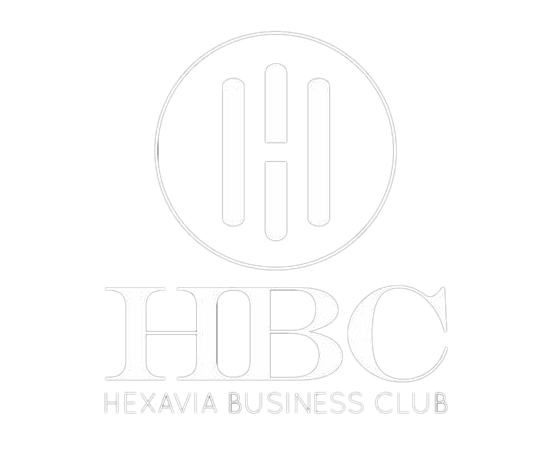Killing Giants Malcolm Gladwell’s ‘David and Goliath’ To judge by “David and Goliath,” Malcolm Gladwell’s favorite word is “we.” In fact, it’s been his favorite word since his first book, “The Tipping Point,” launched his enormously successful career writing about how the world doesn’t necessarily work the way “we” think it does. His book “Outliers” was about (among other things) how success requires ingredients that are different from ones “we” normally assume — to wit, talent counts for far less than hard work, luck and background.

Before that, “Blink” proposed that one’s first impression turns out to be right surprisingly often — contrary to the belief many of “us” hold. And “David and Goliath”? It’s about the advantages of disadvantages — and the disadvantages of seeming advantages. Or, as Gladwell puts it: “We have a definition in our heads of what an advantage is — and the definition isn’t right. And what happens as a result? It means that we make mistakes. It means that we misread battles between underdogs and giants. It means that we underestimate how much freedom there can be in what looks like a disadvantage.” The “we” of course does not include Gladwell. That’s the whole point of a Malcolm Gladwell book.
He has delved into the literature; he has interviewed lots of people — scientists, economists, deep thinkers and others who wind up in the book — and he has divined meaning and found counter-intuitive connections that would otherwise elude the rest of us. Those connections can be quite dizzying. In “David and Goliath,” Gladwell links people who are dyslexic with a hero of the civil rights movement and the citizens of London during the blitz. According to him, they all managed to turn disadvantages into advantages. On the flip side — those whose advantages aren’t so advantageous after all — include students who are not at the top of their Ivy League classes, teachers of extremely small -classes and very wealthy parents.
As always, Gladwell’s sweep is breathtaking, and thought-provoking. What it is not, however, is entirely convincing. You don’t have to be a knee-jerk contrarian to realize that there is a good deal of common sense in Gladwell’s thesis. It’s just that it’s not always as counter-intuitive as he makes it out to be. When he writes about the actual example of David and Goliath, he makes the point that David — quick and accurate with the slingshot — was in fact the one with the advantage over Goliath, who was “too big and slow and blurry-eyed to comprehend the way the tables had been turned.” “All these years,” he adds, “we’ve been telling these kinds of stories wrong.” But have we really? It strikes me that many Americans already understand the advantages of the seeming underdog, thanks in part to an example that Gladwell does not include: the way America’s immense military power could not win the Vietnam War, or tame Iraq and Afghanistan. Similarly, Gladwell devotes a chapter to people with dyslexia, making the point that the skills they nurture to compensate for their condition can sometimes lead to a life of extraordinary accomplishment.
He cites a study — and Gladwell always seems to find the perfect study — by a researcher at City University London that purports to show that “somewhere around a third” of all successful entrepreneurs are dyslexic. (One of Gladwell’s prime examples is David Boies, the well-known lawyer) But this insight about those with dyslexia also strikes me as fairly common knowledge, documented at least anecdotally in recent years. On the other hand, one of the most unconventional theories in “David and Goliath” is that for certain people, losing a parent early in life can be an advantage. He cites the work of Marvin Eisenstadt, a psychologist who did a study showing that “of the 573 eminent people for whom Eisenstadt could find reliable biographical information, a quarter had lost at least one parent before the age of 10” — and 45 percent had lost a parent before the age of 20.
The central figure Gladwell leans on to make this case is a doctor named Emil J. Freireich, who made extraordinary advances against childhood leukemia. The section about Freireich is where Gladwell really starts making the kinds of connections he is famous for. It also illustrates the book’s primary shortcomings. The chapter starts with Freireich’s childhood, which was marked by his father’s presumed suicide. Then it cuts to the blitz — the eight months of German bombing raids on London during World War II — to alight on a curious fact: up to 40,000 people were killed and 50,000 injured in the attacks, but to the surprise of the British government, people didn’t panic; many, in fact, simply went about their lives.
For Gladwell’s purposes, this puzzle is best explained by J. T. MacCurdy, a Canadian psychiatrist who posited that because most people did not experience a bomb going off very close to them, they weren’t traumatized; instead they experienced “excitement with a flavor of invulnerability.” MacCurdy called this group “remote misses.” And what do remote misses have to do with Freireich’s extraordinary achievements? Although it takes a while to get there — with further crosscutting into dyslexia, the life of the civil rights activist Fred L. Shuttlesworth and the work Freireich did on children who had leukemia, putting them through hell to find ways to save them — the answer appears to be that sometimes people who lose a parent early in life can be categorized as remote misses. Their difficult childhoods ultimately give them strengths that many of us lack.

On the other hand, Gladwell also acknowledges that many others who lose a parent early on “are crushed by what they have been through.” But isn’t that like saying, “Whatever doesn’t kill us makes us stronger”? Some people overcome difficulties. Others don’t. Gladwell can’t really say why Dr. Freireich is in the former category and not the latter. The best he can do is say that “we as a society need people who have emerged from some kind of trauma,” like Freireich, even though that means that many others who have experienced trauma will not recover the way he did. To which the reader is likely to respond, “And . . . ?” I’ve long admired Gladwell’s work in Good To Great, which employs many of the same literary techniques but is more persuasive, perhaps, because it is more contained and less ambitious. “David and Goliath,” on the other hand, is at once deeply repetitive with thought provoking concepts.


